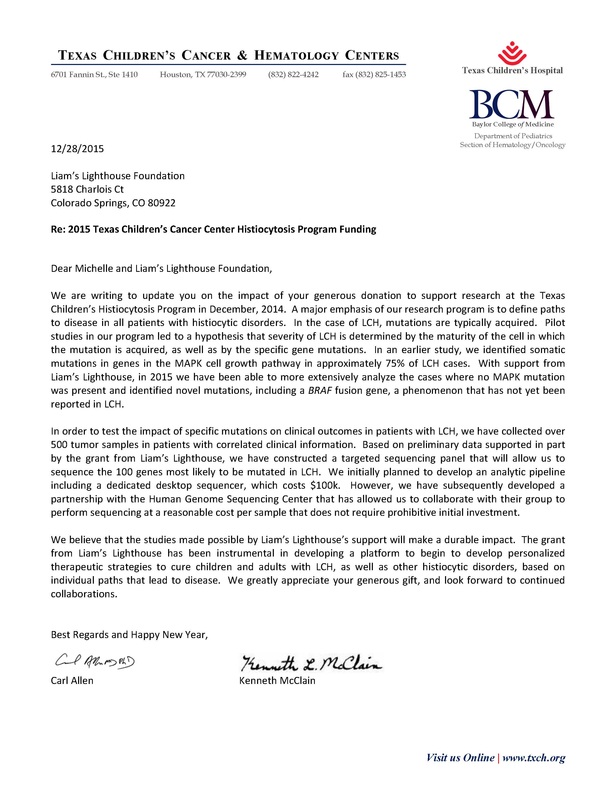|
Making A Difference Together!
We are pleased to announce that proceeds from our 2021 5K to Fight Histio event will go to help fund the following research initiatives: HLHRUXO: Use of a Response-Adapted Ruxolitinib-containing Regimen for the Treatment of Hemophagocytic Lymphohistiocytosis run by Dr. Kim Nichols lab at St. Jude Children’s Research Hospital. This trial is based on our basic laboratory research and aims to test the efficacy of a new type of drug called a JAK inhibitor for children with HLH. JAK inhibitors suppress the pro-inflammatory effects of cytokines, and in so doing, they decrease the manifestations of HLH. Although we have some support from industry, we need more funding in order to complete the trial and carry out studies to better understand whether and how the JAK inhibitor mediates its effects in patients with HLH. For more details about this trial, please click here: HLHRUXO Trial HISTIOTRAK: (run by Dr. Ashish Kumar’s Lab at Cincinnati Children’s Hospital.) A novel test to monitor minimal residual disease. Currently, once patients undergo treatment (chemotherapy or targeted inhibitor), the response to treatment is measured by scans – CT, PET, or MRI. Unfortunately, these are not sufficient to detect small amounts of residual cells that then cause disease relapse. We now know that all histiocytoses are driven by acquired mutations in one of the members of the MAP kinase pathway – most common being BRAF and MAP2K1. We can now detect rare histiocytic cells in blood by using a new sensitive method called droplet digital PCR (dd-PCR). However, this is currently still a research method. We are developing it into a clinical test, which requires us to run several (40-50) samples on it and demonstrate the consistency, sensitivity, and specificity. Funds are needed to generate these data that will be used to apply for certification by CAP (college of American pathologists).
0 Comments
In 2015, $25,000 was granted to Texas Children's Hospital Histiocytosis Research Program with funds raised in 2014. Further Analysis of Possible Genetic Mutations That Cause LCH Based on preliminary data supported in part by the grant from Liam’s Lighthouse, we have constructed a targeted sequencing panel that will allow us to sequence the 100 genes most likely to be mutated in LCH. |
Archives
July 2021
Categories |
|
light - house, (n): a tower with a powerful light positioned at some important point to serve as a guide.
|
Find Us At |
Liam's Lighthouse Foundation - 5818 Charlois Court | Colorado Springs, CO 80922-2226 USA
EIN # 27-1309152
The content on this site is not intended to be a substitute for professional medical advice, diagnosis or treatment.


 RSS Feed
RSS Feed
